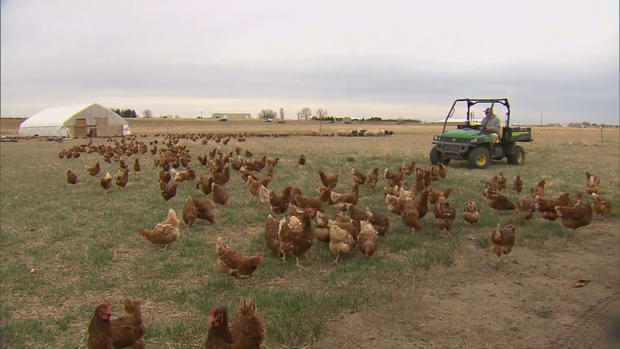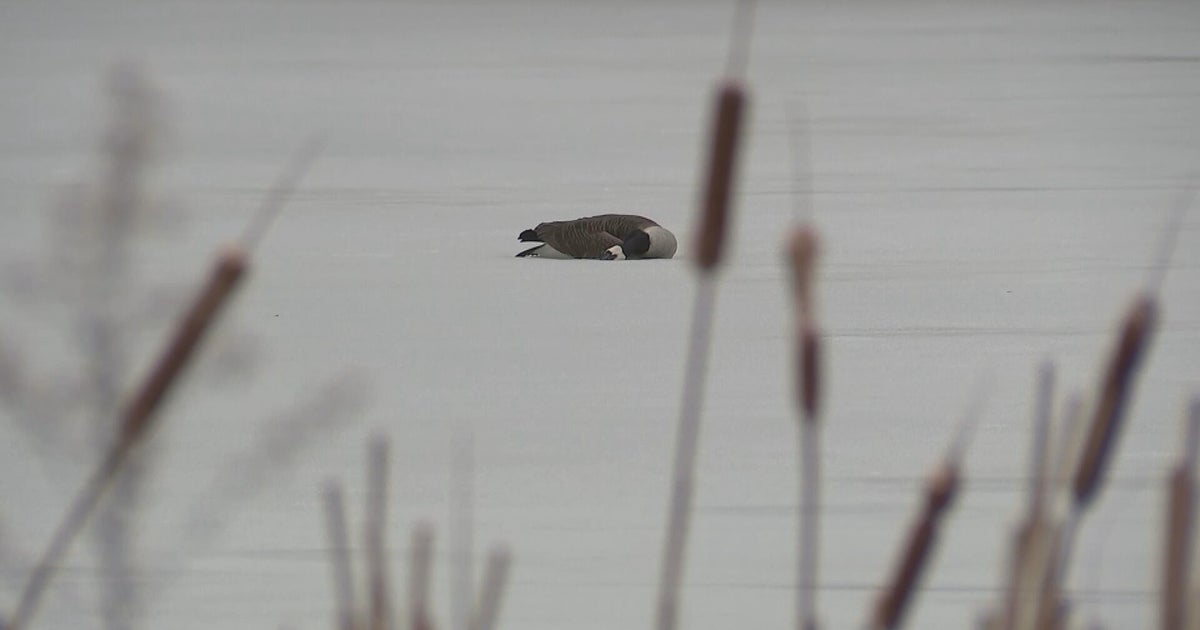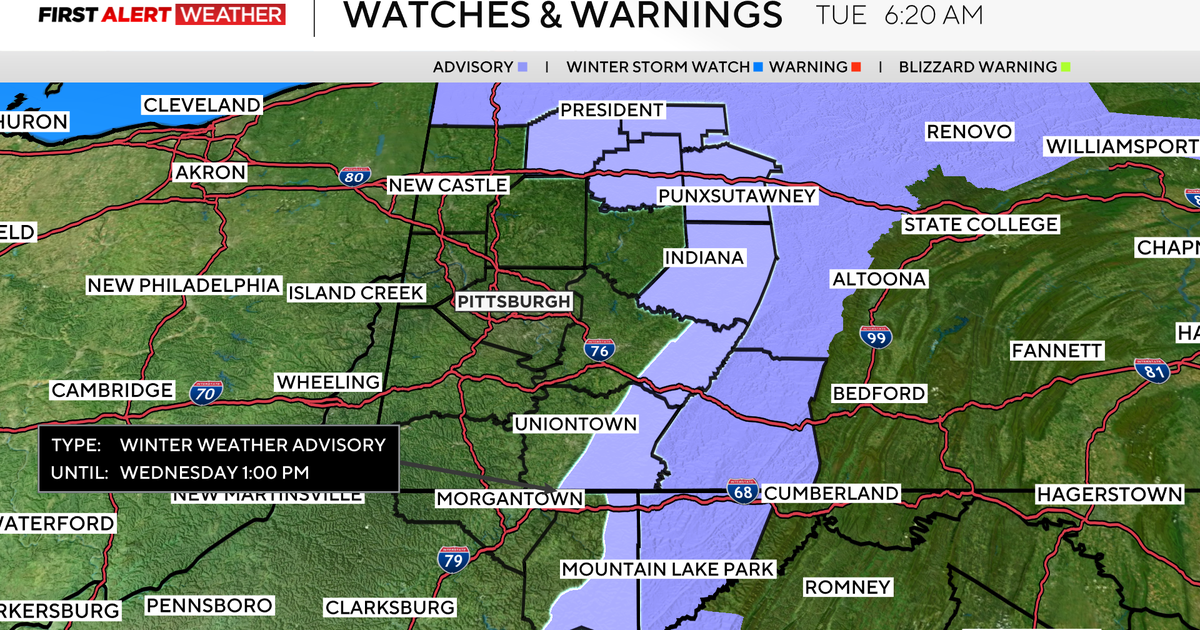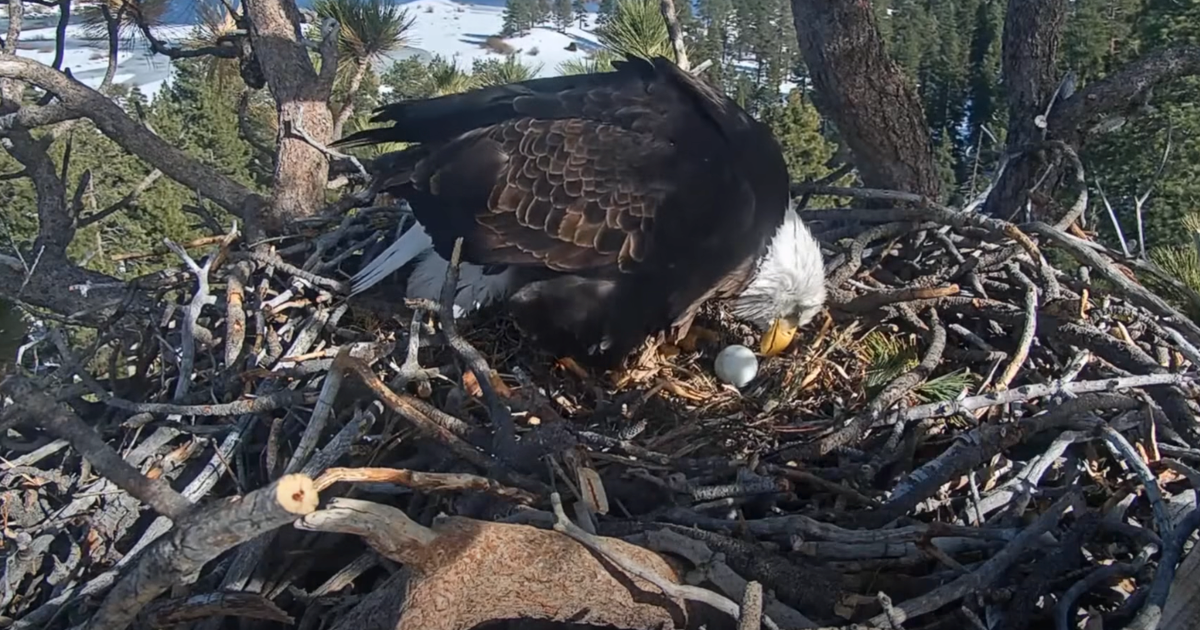Some Colorado Farmers Watching Bird Flu Closely
WELLINGTON, Colo. (CBS4) - Aaron Rice stands in a field at Jodar Farms with his chickens around him.
"It's definitely something that we're aware of, concerned about," he said about the bird flu or avian flu that has moved into Colorado.
The birds are allowed to roam free and feed. The back of his ATV was filled with eggs he gathered in the afternoon.
"We're raising chickens a little differently. The densities are a little lower, so maybe there's a chance if it does show up here that it wouldn't spread."
He has about 3,000 chickens. Later there will be turkeys, too.
"Larger egg operations or broiler operations, they're going to be confined in a big barn and the densities inside those barns you know are pretty tight."
Dr. Kristy Pabilonia, director of clinical diagnostics for the CSU Veterinary Health System of the College of Veterinary Medicine and Biomedical Sciences refers to it by its more scientifically appropriate name; "highly pathogenic avian influenza."
It has moved into the state among wild geese and ducks.
"Influenza viruses are really smart viruses because their reservoir are wild birds and wild birds move all across the globe."
That's why the virus has been hard to stop. In 2014 and 2015 it spread, leading the deaths of 50 million commercially raised chickens and turkeys in the U.S. It a rapid killer. Most dangerous in big operations with large hen houses that can house hundreds of thousands of birds says Dr. Pabilonia.
"It depends a little bit on the housing situation of the birds, but yes the mortality rate can be very, very high."
"If you do pick this up, it's about a 95 % death rate. Happens over three to five days. Then if anything were to survive, the USDA would euthanize the remainder of the flock," said Rice.
The poultry industry in the US is huge, raising over nine billion birds a year. But when millions are lost, there can be an effect on prices for consumers.
"It could affect pricing across the country if it becomes super widespread and knocks out a bunch of barns."
RELATED: Bird Flu Detected In 3 Counties Across Colorado, Denver Zoo Temporarily Closes Bird Exhibits
As far as infecting humans the CDC says there's very little likelihood.
"So this virus could be potentially be transmissible to humans, although that's very rare."
There's a change in the risk for chickens, which have now become more common in backyard coops.
"When I started doing poultry work back about 20 years it was not very common and now it's very common," said Pabilonia. The best practices may be trying to keep wild birds away and not co-mingling birds with other flocks.
It could be a long road ahead.
"You're stuck between a rock and a hard place here and you just kind of hope that it doesn't come through," said Rice.








